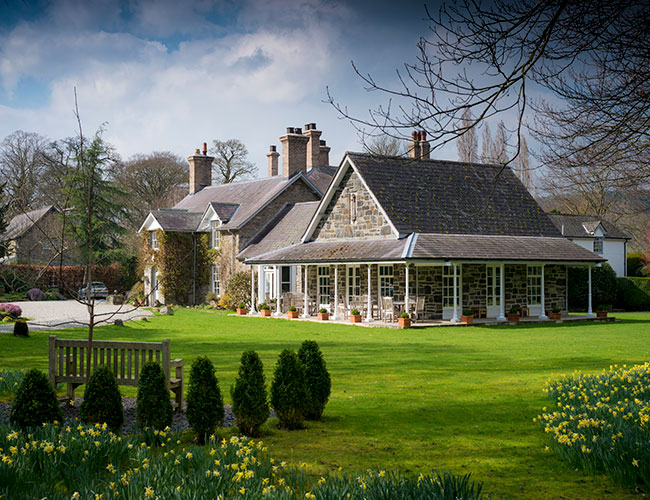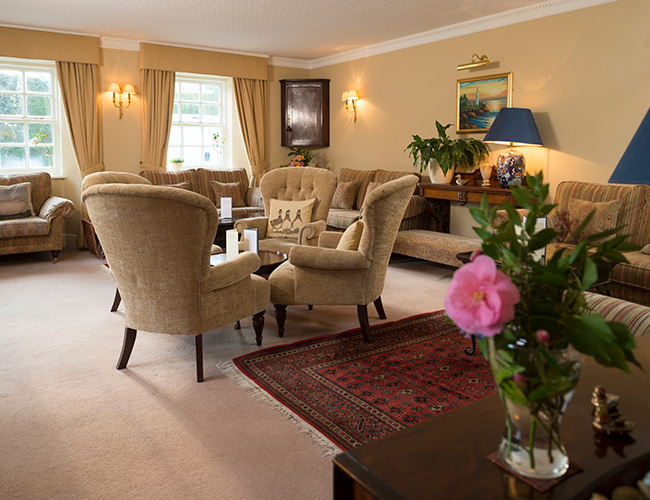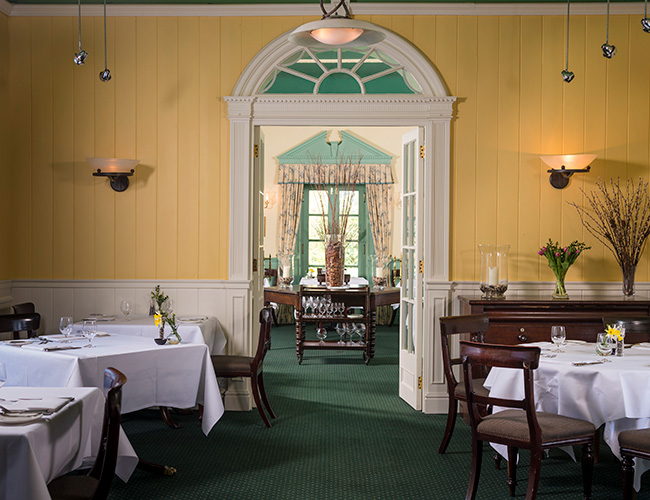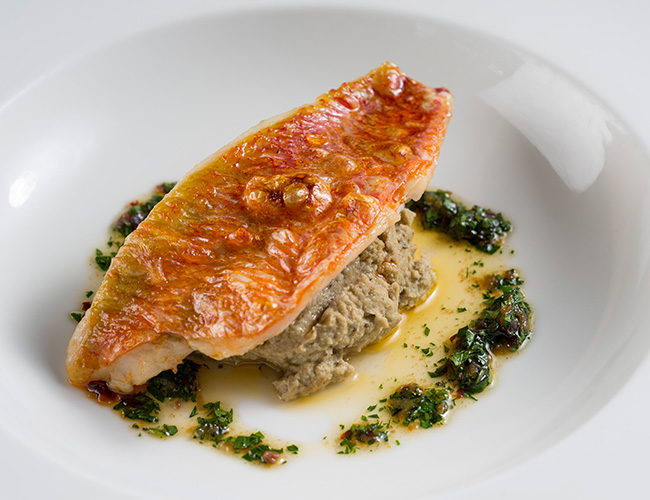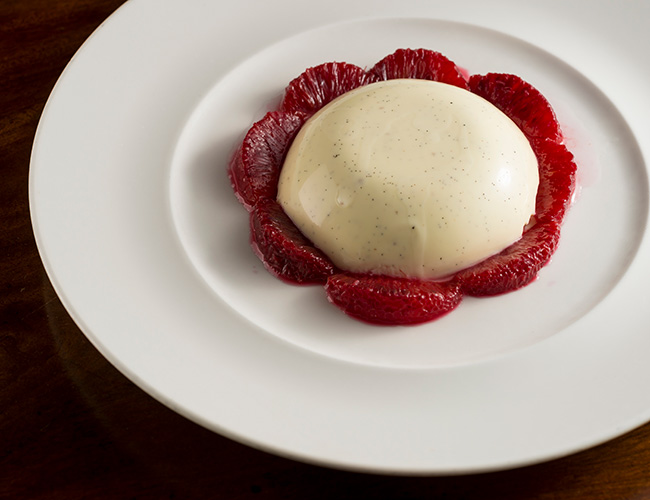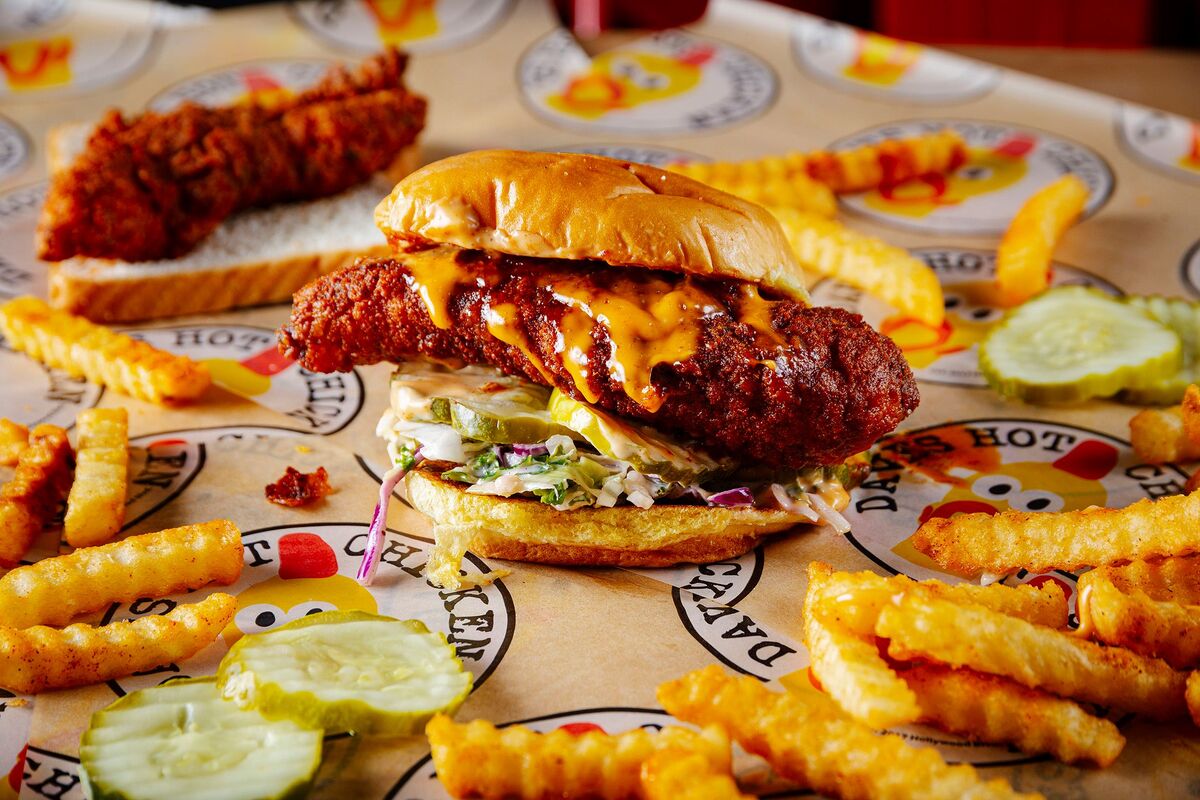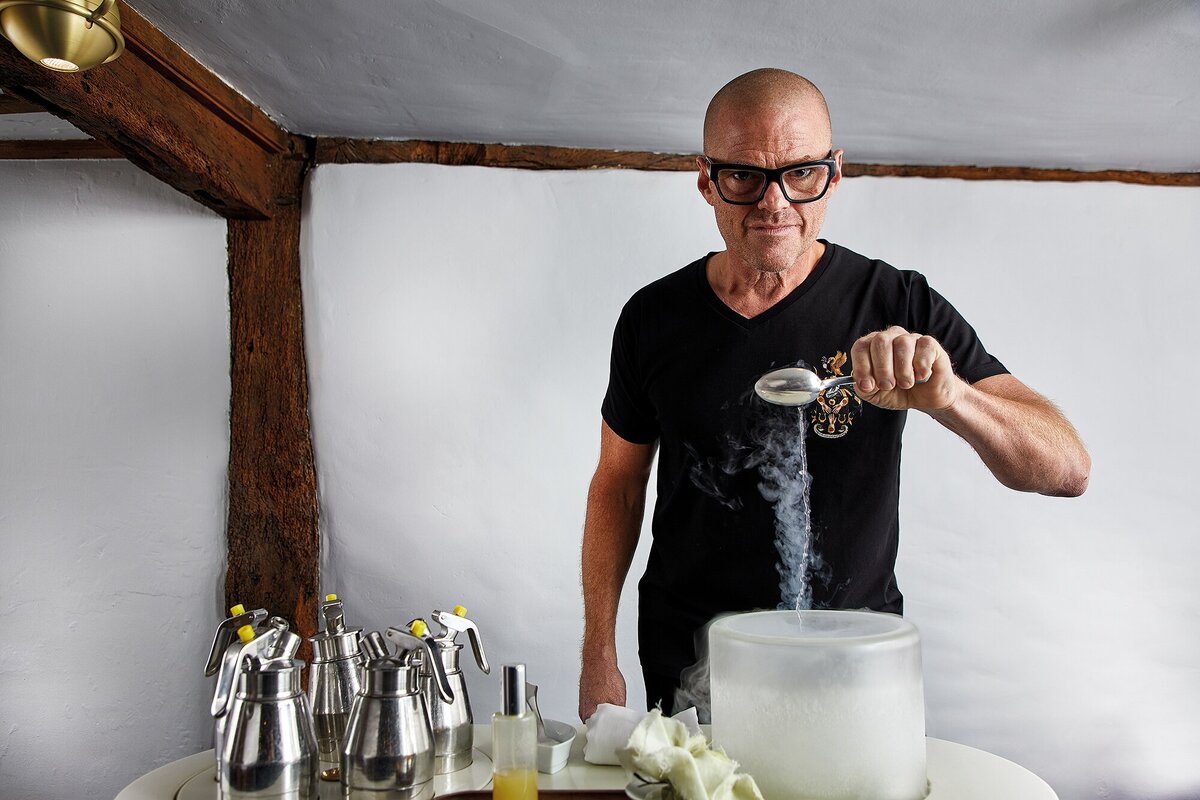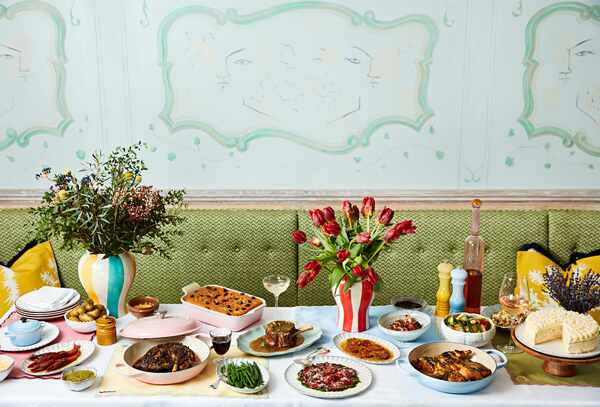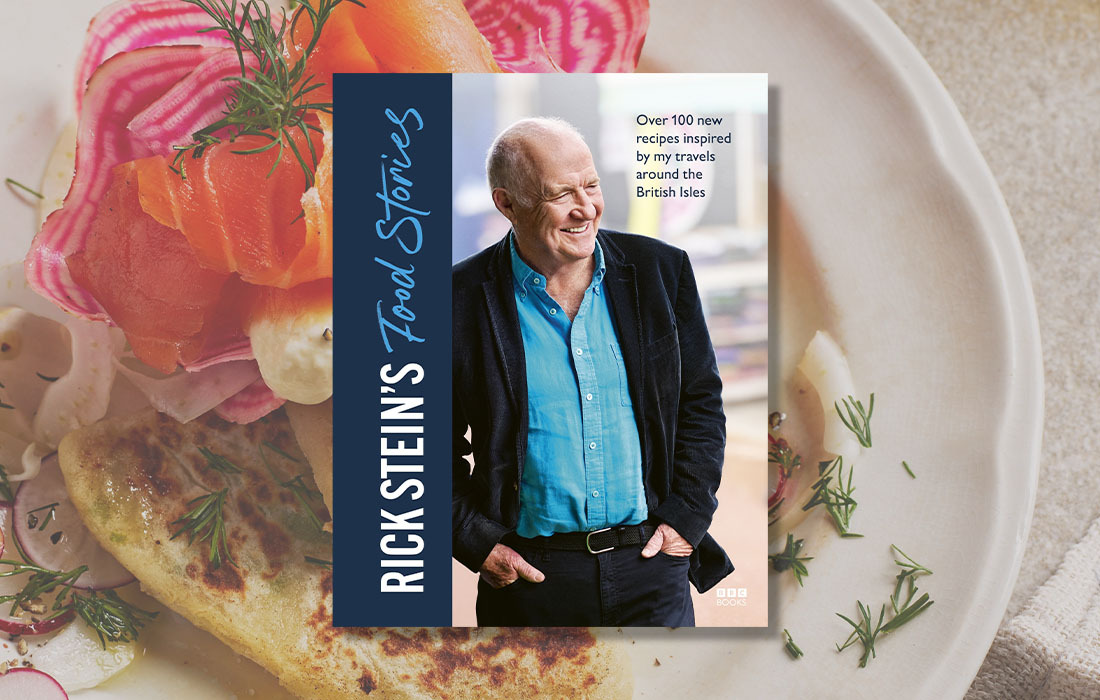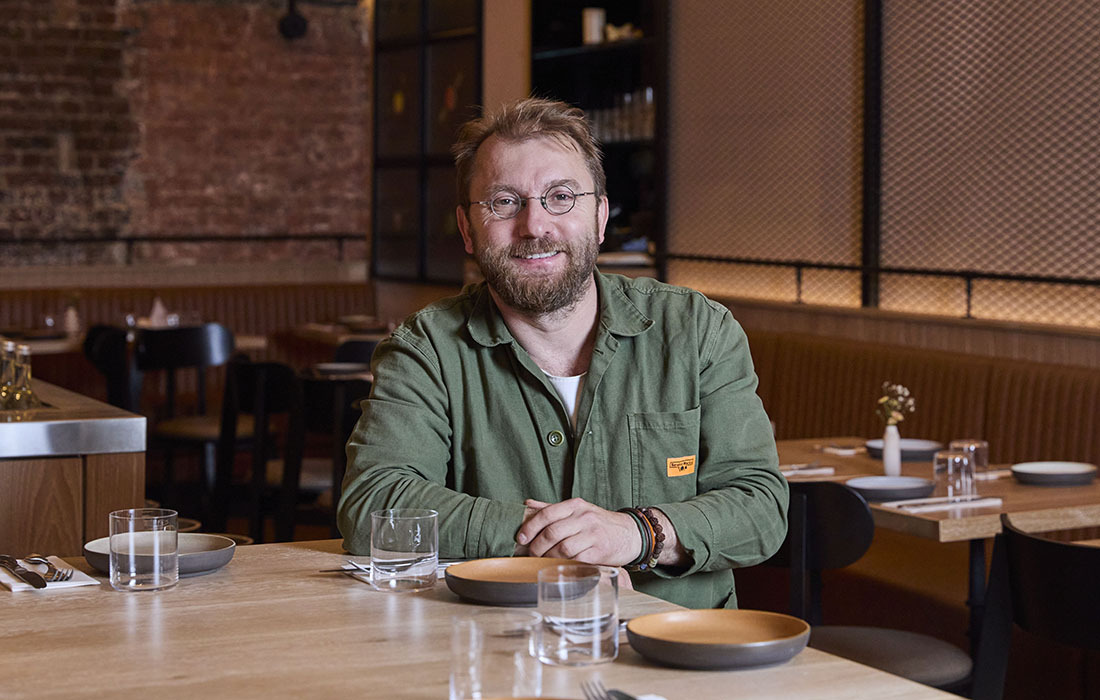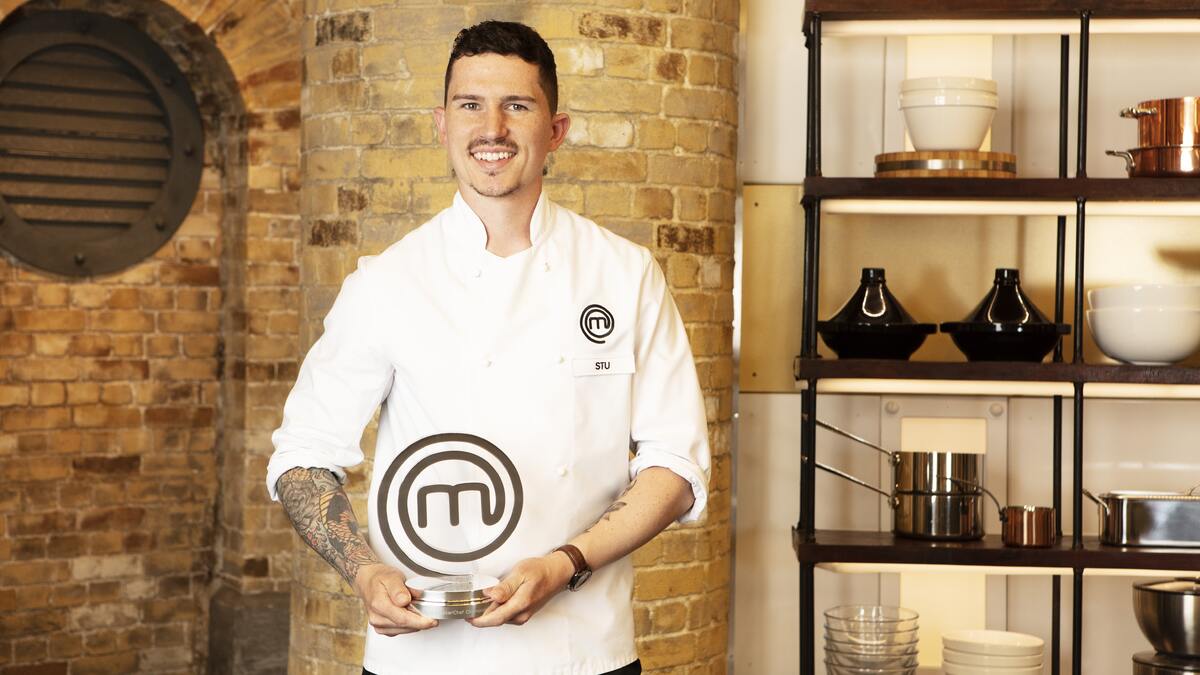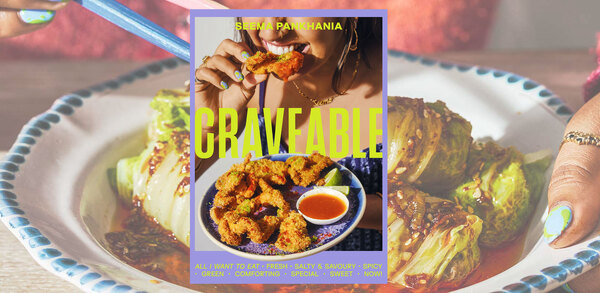Tyddyn Llan, Llandrillo: chef Bryan Webb and his wife Susan reflect on 25 years working together
Richard McComb reports on their journey from Londonâs West End to Wales, where they run restaurant with rooms Tyddyn Llan in Llandrillo, Denbighshire
To understand a chef, you need to look at his food. So let us take two duck dishes. First, breast of Gressingham duck is stacked on top of a hearty potato pancake with a classic cider and apple sauce. The dish is finished with Granny Smith apple, cut into small dice then cooked in butter and Calvados.
The second is more elaborate. The duck, from Cefnllan Farm in Llangammarch Wells, Powys, is accompanied by a sphere of duck faggot, dressed in crépinette, and a golden-brown square of confit potatoes, slow-cooked with shredded confit duck legs.
Here are two starkly different dishes, yet they were devised by the same chef, Bryan Webb, also co-owner of Tyddyn Llan restaurant with rooms in Llandrillo, Denbighshire.
Less than a decade separates the two plates. Webb says he felt under pressure to modernise the original dish, which became a staple on the menu after he and wife, Susan, who runs front of house, took over Tyddyn Llan in 2002. A âfancyâ duck dish the couple ate at Restaurant Gary Danko in San Francisco convinced Bryan that the potato pancake had had its day.
âThe presentation is more in keeping with what people want these days,â says Bryan. âBut if you want a piece of food that is really me, it would be a piece of sea bass, laverbread butter sauce, some spinach. Full stop. Or steak au poivre, chips and green salad.â
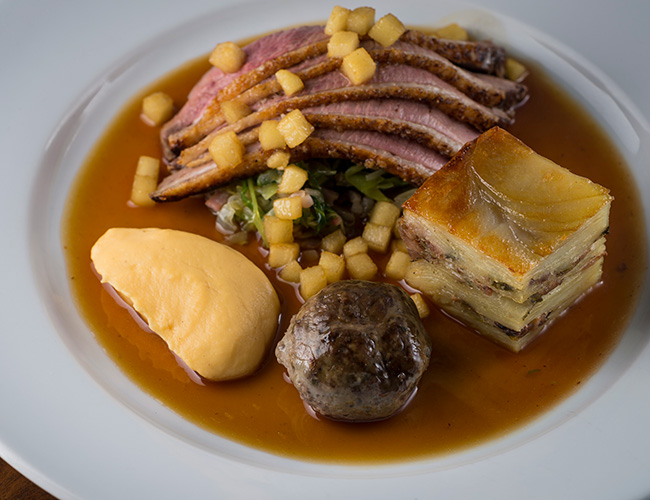
Now another landmark has arrived â" the silver anniversary of his professional partnership with Susan (there is another three years to go before the matrimonial equivalent). It is a stellar achievement for a husband-and-wife team in one of the British economyâs most turbulent sectors.
âWe spend every waking hour together, even though we can be like ships that pass in the night in the kitchen,â says Susan, adding with a smile: âWe still talk to each other. I actually quite like him.â
Bryan was brought up in the south Wales mining community of Crumlin, Caerphilly. His father, Bernard, a mines rescue manager, said there would always be a job down the pit, but it was the last thing Bryan wanted to do. After completing a catering course at a local college, he became a trainee chef at the Crown at Whitebrook, near Monmouth.
The chef was stung by Sonia Blechâs criticism that he had âno cultureâ â" she meant in terms of food â" but it taught him an important lesson: eat at as many different restaurants as you can afford, open yourself to influences, become enthused.
âThe Good Food Guide became my Bible and most of my spare cash was spent in restaurants,â recalls Bryan in his latest book, Not Bad for a Taff: 40 Years at the Stove. Other books in his growing reference library were Paul Bocuseâs The New Cuisine, John Toveyâs The Miller Howe Cookbook and Robert Carrierâs Great Dishes of the World.
Bryanâs career took him to the Drangway in Swansea, a âmind-blowingâ stage at La Mère Poulade on Mont Saint-Michel, Normandy, and Kirroughtree Country House hotel in Newton Stewart, Dumfries and Galloway. Travelling to London, he took his first head chefâs post at Café Rouge (unrelated to the chain of the same name) near the Barbican.
His next move, to Hilaire in Old Brompton Road in 1987, established his name on the London food scene. He took over the kitchen from one of his food heroes, Simon Hopkinson and, in his own words, found his feet. He honed the style of food he cooks today â" âsimple, clean and tasty food, not mucked around with too much, food that you want to eatâ.
Bryan finally took over Hilaire as chef-patron in 1990, and met Susan, previously working at Antony Worrall Thompsonâs Ménage à Trois, when she came to help out in 1992. âI said I would manage the restaurant for two weeks,â recalls Susan. âAnd that was 25 years ago.â
The couple, who married in 1995, sold Hilaire in 2001 due to rent rises, which soared from £20,000 to £82,000. They took a year off and travelled the world with a view to returning to Wales. When a deal for a pub near Monmouth fell through, fate intervened and they stayed a night at Tyddyn Llan. They knew the owners, who announced they were selling, and suggested it would be great if the Webbs took over. The coupleâs budget was £350,000; the price tag for Tyddyn Llan topped £1m.
âWe found a nice bank manager and borrowed way too much money,â says Bryan. âWe maxed all our credits cards â" and boy did we have a lot of credit cards.â
The couple simply loved the place. However, there was one major issue. Tyddyn Llanâs business model relied on it operating as a small hotel and the Webbs did not have any experience in managing bedrooms.
Tyddyn Llan has 12 individually furnished bedrooms and a large garden suite with secluded outside seating. There are three main dinner menus in the 40-cover restaurant â" the £65 à la carte, a six-course tasting menu (£75) and a nine-course (£90).
Langoustine and diver-caught scallops arrive by overnight courier from Scotland, Welsh Black beef is sourced from local farms via butcher TJ Roberts in nearby Bala, buffalo mozzarella is flown in from Naples and Label Anglais chickens come from Wyndham Farm, Essex. Fish, including turbot and bass, is delivered from south-west England.
Bryan says: âWhen we had our restaurant in London, 55%-60% of the main courses were fish and the rest were meat. Come to North Wales, even after 14 years [at Tyddyn Llan] and you are still looking at 85% meat, 10%-15% fish.â
His cooking relies on classic techniques. âWe cook with saucepans and frying pans,â says Bryan. He did buy a water bath, but it sits unused in the staff room. âI donât know how to use it really,â he admits. âI bought it on a whim. And then we got a Michelin star and I thought it was a lucky charm. So I donât want to throw it away. I would rather have a pot of water and a thermometer.â
He has used a vac-pac machine since 1992 on the recommendation of Marco Pierre White. âHe told me, âThis is what youâve got to buy. Itâll save you X, Y and Zâ,â says Bryan. âHe was right. There are certain dishes we wouldnât be able to do if we couldnât sous vide things.â
There continue to be culinary challenges for Bryan and his small brigade. The previous night, a table of five, including a vegetarian and a vegan, all wanted a nine-course tasting menu. âMy first reaction was âI canât do itâ and then my brain started to work a bit,â he says.
It must have been a busy day prepping for kitchen stalwart Vivi, who Bryan relies on for vegetable peeling and chopping: âWhen she is on holiday, I get blisters on my hands. I think after 40 years of chopping your own mirepoix, there has got to be some luxury.â
Old habits die hard, which means the menu is printed every night at 6.55pm, just before the guests arrive. âHe does fly by the seat of his pants,â says Susan. âI like to live on the edge,â adds Bryan.
The dinner menu remains resolutely comprehensive, with six or seven choices for starters and main courses. Lunch is served on Friday, Saturday and Sunday.
The couple say they are in the best financial position of their lives and, interestingly, profits have increased since they took the decision a year ago to close for two days a week, on Monday and Tuesday. Bryanâs âweekendâ begins after he cooks breakfast on Monday.
âItâs the only way to get me out of bed,â he says. âCan you imagine lying in bed and the chef hasnât turned up to cook breakfast? Itâs the last thing I want. And Iâm a control freak. I would say I do breakfast 95% of the time.â
â99% of the time,â adds Susan.
It is a punishing schedule, so I am interested why Bryan still insists on full-throttle gastronomy. âWhy do I still do it? Number one, because I canât do anything else,â he laughs. âNumber two, I enjoy the lifestyle that goes with it. I like eating in nice restaurants, I like travelling and I like socialising. Unless you have a good income, you canât do that.
âAt the moment, we donât have an exit plan. If someone came along with a chequebook, I might think about it. I can see us being here until I have a heart attack at the stove. And weâre well insured, so thatâs OK!â
Admonished by Susan, Bryan gets ready to head back to the kitchen in readiness for dinner service and menu writing. First, he will prepare the dinner the couple will eat after the final plates have gone out, around 11pm. Tonight it is Chinese.
I am intrigued about those two duck recipes though â" the robust French-informed plate versus the modern British interpretation. Which one does Bryan actually prefer? âProbably the original one,â he says.
Bryan Webb incurred the wrath of Marco Pierre White after a âreally bad lunch, food and serviceâ at the Canteen in the 1990s.
He says: âMarco saw me from the bar and called me over to ask what was wrong. So I told him, which he did not like, and he was with the head chef of Nicoâs at the time, which must have made matters worse. So the bill was ripped up and we were banned from all his restaurants.
âBy the time I got back to Hilaire, his fishmonger was on the phone asking what was wrong with the fish. The ban was lifted after meeting him with Mr [Michael] Winner at Kartouche and I went up to say hello.â
Favourite restaurants Chez Bruce [London] and the Walnut Tree [Llanddewi Skirrid, Abergavenny] â" âMy favourite restaurant since I was 15.â
Michelin star wars: the Fat Duck or the Waterside Inn? The Waterside Inn
Best meal The Modern, New York
Definitive Bryan Webb dish Roast wild bass with laverbread butter sauce
Tip for early career professionals âItâs not just about cooking and serving the customers; the business side is crucial.â
Celebrity claim to fame David Beckhamâs dad has fitted kitchens for him â" twice
Secret passion Classic 1970s rock music â" his favourite song is David Bowieâs Drive-In Saturday. (Writerâs note: I am unfamiliar with the song; on my drive home from Tyddyn Llan, it comes on the radio.)



